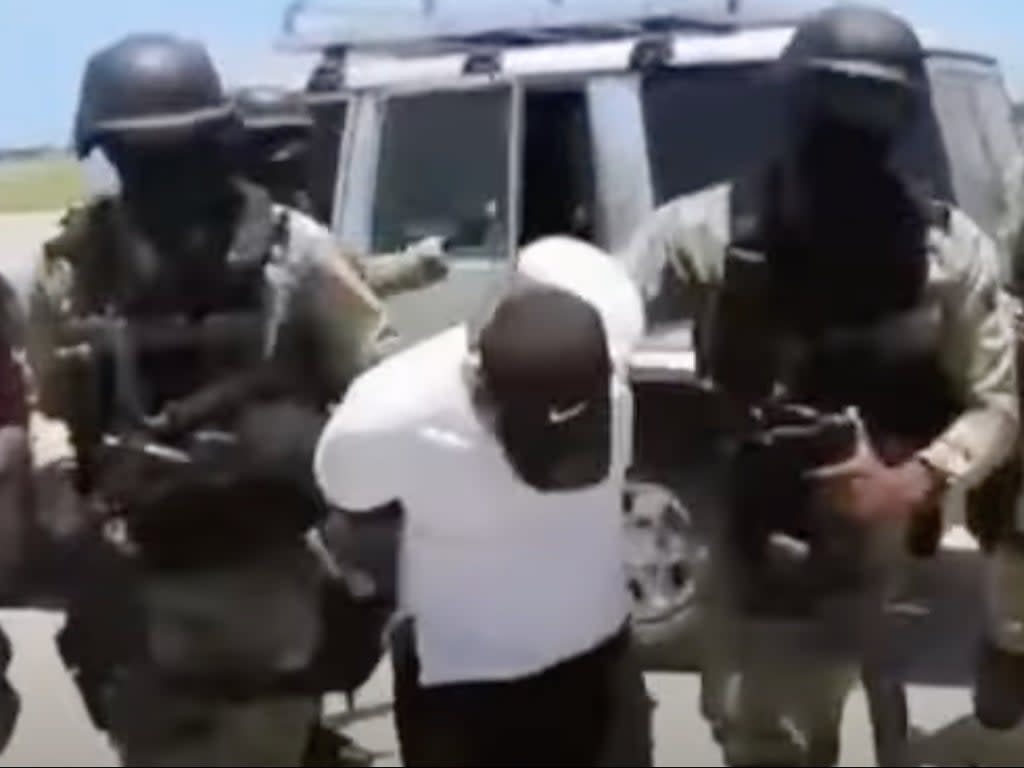US charges suspected head of Haitian kidnapping gang that abducted American missionaries

The leader of an infamous Haitian gang responsible for mass kidnappings across the country — including the kidnappings of 17 American and Canadian missionaries — has been charged by American authorities.
The Washington Post reports that the leader of the 400 Mawozo gang, Germine Joly, is being accused of criminal conspiracy to smuggle firearms and munitions to his gang.
Mr Joly and three others — including one US citizen and two Haitians living in Florida — were charged with conspiracy to violate export control laws and to defraud the US, money laundering and smuggling, according to a court filing from the US attorney's office for the District of Columbia.
Haitian authorities confirmed that Mr Joly — aka "Yonyon" — was transported from Haiti to the US on Tuesday on the request of American authorities.
400 Mawozo is one of the country's most hated and feared gangs. The group is known to use rape, extortion, assassination, and for hijacking vehicles filled with people like cars or buses.
The group has also crossed lines where other organised crime outfits might hold back by targeting members of the church and young children in their attacks.
When the gang kidnapped a group of American and Canadian missionaries with Christian Aid Ministry last year, the group demanded $1m for each hostage released. The missionaries were in captivity for two months and claimed they escaped, though it was reported some ransom was paid to the gang.
According to organised crime analysts, Mr Joly ran the gang from inside his prison cell in Port-au-Prince.
The smuggling charges stem from Mr Joly allegedly using WhatsApp to contact US-based arms dealers to acquire weapons for the gang. The arms dealers — the three Florida-based defendants — allegedly attended gun shows to acquire the weapons, and presented themselves as the "actual buyers" of the weapons.
They did not obtain an export license for the weapons, and then proceeded to smuggle the arms to Haiti.
“Specifically, certain of the firearms and ammunition were wrapped in garbage bags, loaded into large multi-gallon drums/barrels, and then covered with various products such as clothes, shoes and Gatorade to hide the presence,” prosecutors claim in the indictment.

